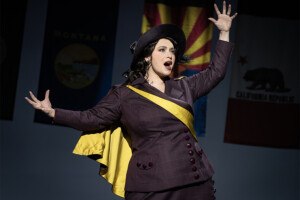Searching for Richardson Dilworth
At the same time, Dilworth was no purist. He believed in Getting Things Done.(7) He believed, as he told Thacher Longstreth at a breakfast meeting the day after he kicked the crap out of the poor guy in the mayor’s race, “Politics is war, and in war you have to do what you have to do to win.”(8) Both in his campaigns and in City Hall, he made his accommodation with the machine. Almost as soon as Dilworth was sworn in as mayor, he scheduled a series of lunches with the old-school ethnic pols on Council (a shrewd move, as it turned out, and one that Clark never could have pulled off [9]), tried to amend the Home Rule Charter to give some civil-service jobs to the party (an act seen as blasphemy by the city’s liberals, who accused him of “charter ripping”), and looked the other way at the long-standing practice of requiring developers to grease their zoning permits through Council by ponying up $2,500 for tickets to party fund-raising dinners.(10) His solution to the zoning dilemma, according to an article in this magazine, “was to appoint to key positions men in whose integrity he had absolute trust, like Ed Bacon in City Planning … if some bills were still going to get paid for, at least they were going to be good bills.”
And lo, Things Got Done: In the reform decade, the city created a planning department, a housing department and the Redevelopment Authority, and became the first major city in the nation to fluoridate its water in an era when fluoridation was thought to be a Communist plot. It massively expanded the airport and tore down the “Chinese wall” of elevated train tracks west of City Hall, clearing the way for the SEPTA lines of today. Some of these new monuments would later devolve into patronage dens (like the RDA) or incubators of hopelessness and crime (high-rise public housing), but Clark and Dilworth didn’t know it at the time. Dilworth continued to pump money and energy into projects begun by Clark while launching new ones, while creating a police review board, while completing the move of the rat-infested food distribution center by the waterfront to a better spot in South Philly, and while moving himself, his family, in the mid ’50s, to a new home in the heart of the phoenix-like Society Hill, hoping to set an example that the city’s middle-class whites would follow. But even more than the bricks and the mortar, Dilworth rebuilt the city’s psyche: its image of itself, its sense of the possible. Under the dapper aristocrat, says journalist Peter Binzen, “People began to believe in the city.”
7. Prefiguring guys like Vince Fumo, whose motto is “W.G.S.D.”: “We Get Shit Done.”
8. Including lying. Longstreth once told Dilworth that he admired how Dilworth, during a debate, could always spout any fact or figure at a moment’s notice. Longstreth asked, “How do you do that?” Dilworth said, “I make them up.” Dilworth’s son, Dick Dilworth Jr., tells a similar story: It’s 1950, and Dilworth’s running for governor. He asks one of his staffers to look up where Pennsylvania stands on education relative to the other 49 states — hoping the number comes back low so that he can campaign as a savior of the schools. The staffer informs Dilworth that Pennsylvania is 24th in the nation in education. And Dilworth thinks for a second and says, “Make it 48th.”
9. It’s worth noting here that Dilworth wasn’t an effective administrator because he was naturally charming. He had to work at it. He saw himself as a shy person. That’s how he explained the fact that he could never stay sober for very long. “I still enjoy [alcohol], unfortunately,” he told Binzen in 1972. “It has a great releasing effect on me. I’m terribly uncomfortable around people I don’t know.”
10. Nothing ever changes; John Street funded his campaigns via pay-for-play checks from developers.


